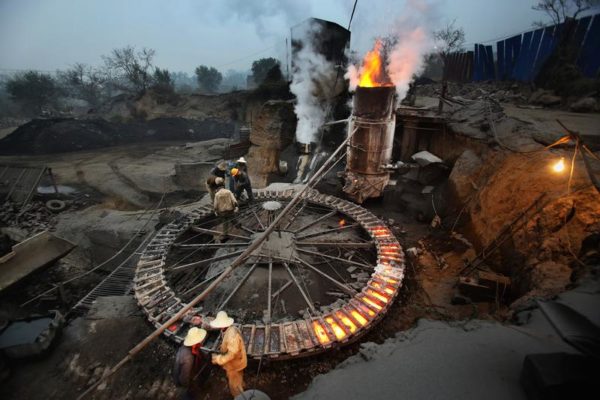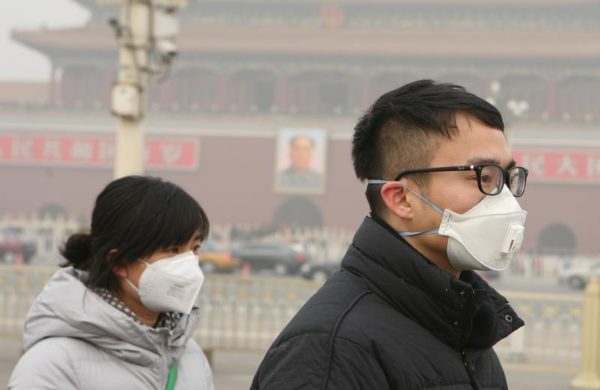‘Beautiful China’: Beijing starts the biggest shutdown of steel factories in history
China to launch first regional Environmental Protection Bureau to consolidate cuts in air pollution following party conference

Earlier this month and without much comment, dozens of huge steel mills in China stopped or curtailed their operations. In northern China cement plants are preparing to shut down entirely before Christmas.
The measures are a part of an aggressive action plan that aims to cut wintertime particulate pollution by 15% year-on-year over the next five months. These cuts are badly needed as Beijing and the surrounding industrial provinces have suffered the winter’s first serious episode this week, with PM2.5 levels across several provinces reaching “very unhealthy” levels.
The shutdowns began ahead of the twice-a-decade party congress where President Xi Jinping outlined his vision of a “beautiful China”. They are set to take full effect in mid-November and continue throughout the winter.
The operating restrictions affect one quarter of China’s total steel-making capacity and approximately 10% of cement production.
The measures are expected to cut national steel output by over 10% in the next five months and could avoid as much CO2 as Denmark and Finland emit in one year.
Air pollution
The steel industry is the dominant source of air pollutant emissions in the Beijing region, as the surrounding Hebei province is the world’s largest producer of the metal and has poorer emission control performance than other large producer provinces.
Industrial emissions are responsible for 40-50% of the PM2.5 levels in the region, with steel and cement the largest emitting sectors. PM2.5 refers to tiny particles of pollution small enough to pass through the lung into the bloodstream.
The winter action plan on air pollution in northern China was announced this year to inject new momentum into the war on pollution.
Progress on air pollution stalled in the region after a massive stimulus push started by the government in early 2016, leading to a temporary increase in output and prices of steel, cement and other products from highly polluting industries.
Besides curbs on steel, cement and aluminum production, the plan targets household coal use, restricts diesel trucks, and stops major construction projects. Brick-making, pottery and other small industries are ordered to close down as well.
It means three million households are to be shifted from coal-burning to electric and gas heating.

Environmental protection bureau
The five month shutdowns are temporary, though the plan also creates a new joint environmental protection bureau covering Beijing and the two surrounding provinces and ratchets up enforcement of industrial emission norms.
Improvements in enforcement could have a lasting impact.
Indeed, factory shutdowns are becoming a recurring feature in China’s war on air pollution, affecting the profitability of heavy industry and potentially paving the way for reforms that will reduce the economy’s reliance on highly polluting sectors in a sustained way.
China’s environmental minister Li Ganjie has also emphasised the forward-looking aspect of the campaign, saying: “These special campaigns are not a one-off, instead it is an exploration of long-term mechanisms.”
In the short term, major construction projects in the province are also being suspended for the winter period in an effort to control dust emissions.
As the construction sector is by far the largest source of steel demand, the measures will also reduce demand on the partially closed plants.

